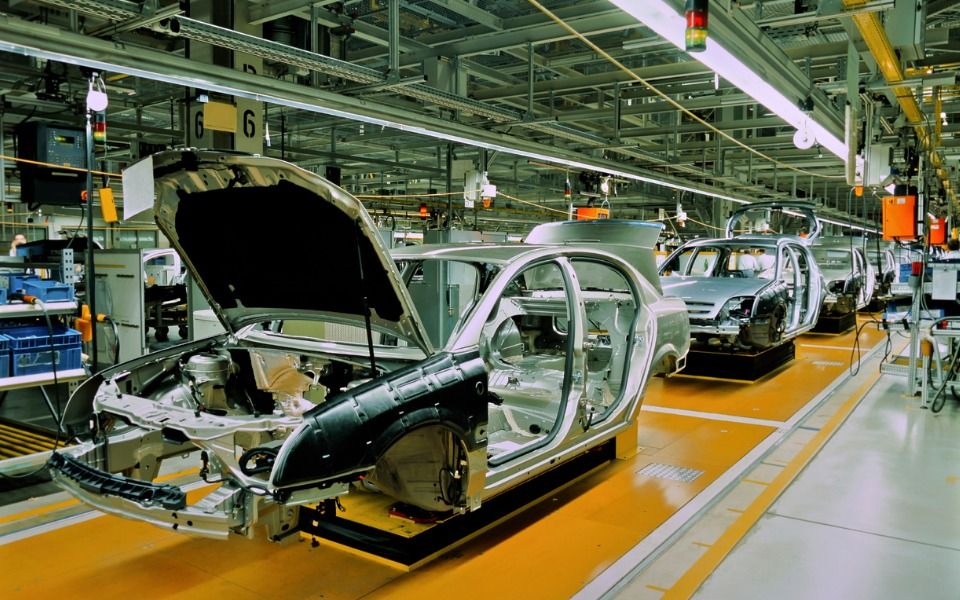
Despite significant competition from China, Indian exports of auto components found markets in Vietnam and Indonesia. Domestically too, there has been a noted demand for SUV’s and mid-sized cars, which can offset some of the production intended for Mexico. File photo
Global micro chip crisis hits car, appliances industries hard
IBM president Jim Whitehurst has warned that computer chip crisis could extend for two more years, thus hinting that the technology sector may have to live with the shortage for some more time despite an increasing demand from an economy which is reviving in the backdrop of a severe pandemic.

IBM president Jim Whitehurst has warned that computer chip crisis could extend for two more years, thus hinting that the technology sector may have to live with the shortage for some more time despite an increasing demand from an economy which is reviving in the backdrop of a severe pandemic.
The global auto industry is already reeling under the coronavirus pandemic and with its after-effects remain. At such a time, the sector is faced with a headwind in form of a computer microchip crisis.
The chip crisis is a direct consequence of the 2020 COVID infection. Initially, car makers cancelled chip orders seeing a fall in demand for vehicles as people were shut indoors due to lockdown. During the same time, the demand for chips surged due to significant sales of laptops, game consoles and cellphones because people were home-bound, also due to lockdown.
The shortage of chips has not just impacted the auto industry, but also the household appliances sector with the production of everything – from washing machines to toothbrushes – getting affected by the global chip shortage.
However, the chip crisis seems to have hit the automobile industry hardest. The industry is set to lose roughly $110bn this year, said Whitehurst while speaking to BBC on Friday (May 14).
“So frankly, we are looking at couple of years … before we get enough incremental capacity online to alleviate all aspects of the chip shortage,” Whitehurst said.
Also read: Post lockdown, women in low-paying jobs take the heaviest hit
The IBM top boss said that looking at the ever-increasing demand and the inability of chip makers to meet such a huge demand, the industry may have to change the way microchips were used. By which he meant reusing, extending the life of certain technologies and giving a thrust to investment in setting up plants that support such technologies.
“Inflationary pressures are building because of the reopening of the economy, supply chain issues and a global semiconductor shortage,” said Ryan Sweet, a senior economist at Moody’s Analytics in West Chester, Pennsylvania.
Consulting firm AlixPartners estimates that the auto industry will suffer the most as the crisis is set to affect production of 3.9 million vehicles this year, pushing the cost to the industry to $110bn from an earlier forecast of $61bn.
Also read: Sputnik V vaccine rolled out in India, to cost ₹995 per shot
Mark Wakefield, co-leader of AlixPartners’ global automotive practice, said the car manufacture industry has no choice but to approach semiconductor makers and establish a direct relationship with them.
Meanwhile, Ford cut down its vehicle production by 50% and hinted at redesigning automotive components to use more accessible chips. The shortage has compelled the US auto giant to idle production of its highly profitable F-150 pickup trucks. Ford CEO Jim Farley said recently the company is contemplating signing deals directly with factories that make the wafers used in semiconductors.
To tide over the crisis, General Motors and Ford recently declared that their popular models will be manufactured without chips. When the crisis gets over, these cars will be recalled and retrofitted with the required chips, the companies have said.
Besides Ford, General Motors, Volkswagen, Subaru, Toyota and Nissan are among the most affected auto companies.
Needless to say, this crisis has had a direct impact on car prices, which are going through the roof. About 4.2% rise in US inflation this week was down to higher car and truck prices, the Guardian reported.
Samsung, a leader in production of memory chips, stated that the production of TV sets would be affected by chip shortage.
In addition to the demand supply mismatch, the US sanctions against Chinese tech firms over the issue of data theft has only deepened the microchip crisis.
Taiwan is the market leader in manufacture of high-end processing chips with 92% of the world’s most advanced semiconductors made by Taiwan Semoconductor, also known as TSMC.

